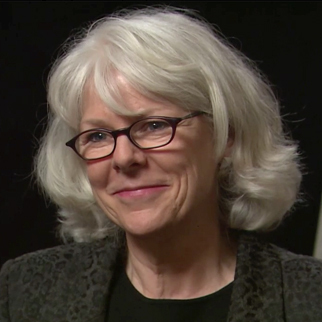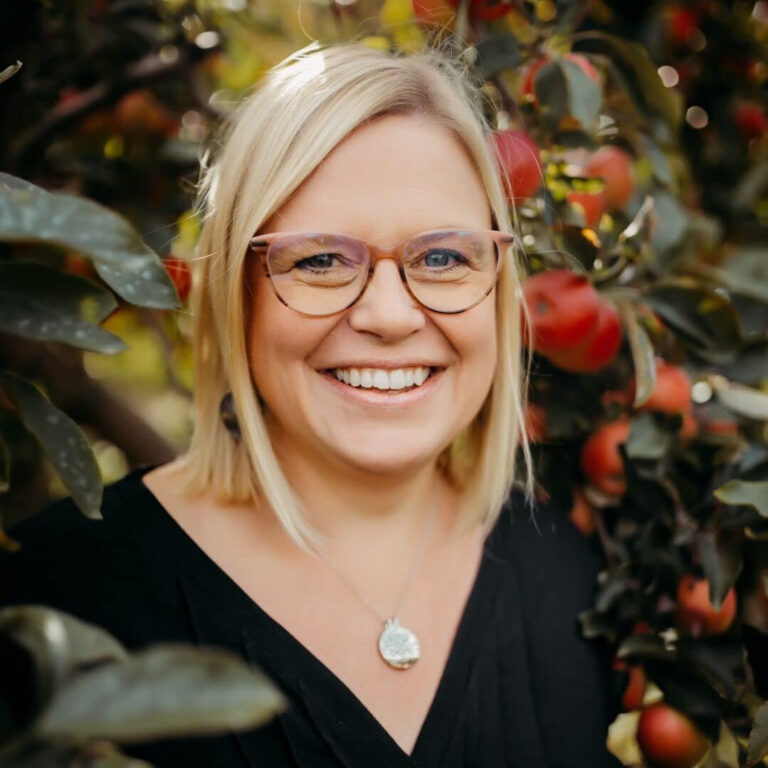When I was farthest from home, I found God to be closest.
At 22 years old, I landed on September 11, 2001 in Geneva, Switzerland to work as an au pair. I had just finished four years at my small, Christian college—beginning as a freshman in the front row of the chapel services to a senior who snuck in quietly and hovered near the back.
I was questioning, disoriented, and uncertain what was next.
In Switzerland, I cared for a 10 and 12-year old who had parents who were separating. I tried to make myself small in a house that didn’t have room for me. I was not the glue this family needed; I was a placeholder, an uneasy presence in the margins. I made meals, cleaned the house, played games with the kids, and counted down to my time off on the weekends.
I was surrounded by the Alps, by beauty, but lonely and homesick. I had expected to feel adventurous and free, but I mostly felt trapped.

I started praying again. Not because I should, but because I needed to in order to fall asleep at night. I picked up my Bible, but not out of obligation, but because in the Psalms, I found comfort.
We are most likely to be rescued when we finally believe we need it.
This season of my life was one of disillusionment and growth. Those two companions often travel together, don’t they?
The word disillusionment has its roots in the combination of the prefix dis-, meaning “not” or “opposite of,” and the word illusion. Dis carries with it a negative connotation: disgrace, disgust, dishonor, disbelief.
Yet, disillusionment is defined as the state of being freed from an illusion or false belief. It can be a letting go, rather than a disappointment. A dying, but in order to make room for new growth.

I’ve long been a fan of Barbara Brown Taylor—author of Leaving Church and Learning to Walk in the Dark. But recently, I came across a used copy of her 1993 memoir and collection of sermons, The Preaching Life. In its first chapter, “The Truth in Ruins,” she writes:
Disillusionment is a loss of Illusion— about ourselves, about the world, about God— and while it is almost always painful, it is not a bad thing to lose the lies we have mistaken for the truth. Disillusioned, we come to understand that God does not conform to our expectations. We glimpse our own relative size in the universe and see that no human being can say who God should be or how God should act. We review our requirements of God and recognize them as our own fictions, our own frail shelters against the vast night sky. Disillusioned we find out what is not true and are set free to seek what is— if we dare.
As I’ve read, I wish I could ask Brown Taylor how she finds the words she published 32 years ago to hold up today. I’m struck that while we may say the church of 2025 is in ruins, she was making this case three decades ago.
I’m a saver, and I find it both compelling and, at times, unsettling to revisit old journals, articles, notes, and scribbles—to catch glimpses of my former self.
While I may label the weight of burdens I carry today as disillusionment, looking back, I tend to have more grace for who I was and where I was. Like a photograph I once hated, but now view with a softer eye—maybe even a kind of tenderness for that younger self and the moment it captures.

These lines from a novel I finished last week, The Bright Years by Sarah Damoff, still echo in my head: “You must not measure salvation like an ingredient that’s either there or not. Yes, salvation can be a heroic moment of rescue. But more often, it’s smaller. Slower.”
I do wish to return to Switzerland in the future. I would love to walk the same streets a couple of decades of life later. I would like to assure the younger self that still remains within me that I was not broken, but being formed. That I was right to discover that God grows nearer when our questions get more honest; when our defenses are down, when we remove ourselves from comfort and certainty. That disillusionment is a gateway to discovery rather than shame.
And yet, I fear oversimplifying. It’s not a simple math equation, as if disillusion + honesty = growth.
And I can’t write today about disillusionment and pain without acknowledging the heaviness of the news. This morning I more details of last weekend’s deadly floods in Texas. Current estimates say at least 100 lives have been lost, 27 from Camp Mystic, the all-girls Christian Camp on the shores of the Guadalupe River.
For those mothers and fathers, for the families, for the brokenhearted, we cry the words of Psalm 6: “Have mercy on us, Lord, for we are faint; heal us, Lord, for our bones are in agony. Our souls are in deep anguish. How long, Lord, how long?
Being honest about the pain does not make it disappear. Admitting we have no easy answers is not a solution to suffering, though is less damaging than cliche condolences and hollow reassurances.
Maybe rescue looks less like safety, and more like finding a God who suffers beside us. Maybe disillusionment doesn’t mean we’ve given up, but are awake to the pain we aren’t too numb or too asleep to ignore.
Near the conclusion to “Truth in Ruins,” the chapter I excerpted above, Barbara Brown Taylor suggests that maybe our job is to “stand with one foot on earth and one foot in heaven.”
One foot on earth and one in heaven: if we’re truly straddling those two worlds, that’s not a comfortable stance.
Perhaps it was never meant to be.
Boat in the Alps photo by Luca Bravo on Unsplash


11 Responses
Thank you for this thoughtful and relevant reflection. I appreciated your coaching and giving me the invitation to see the wonder, mystery and majesty of God even in disillusioning times
Can you ever write, Dana. It feels as if you are sitting here beside me, my getting to listen to the rare fusion of wisdom and warmth.
And on John Calvin’s birthday. There’s a juxtaposition, for ya!
“One foot on earth and one in heaven” – no, not a comfortable stance at all.
A rather precarious balancing act-easy to lose our footing.
Thank you, Dana.
I echo Jack’s comment, Dana, about your writing, and I smile at his reminder that today is Calvin’s birthday, given that Calvin was someone who, to use Scott’s words, also gave an invitation to see the wonder, mystery, and majesty of God in disillusioning times.
Your words went straight to my heart. To be able to see your former self without flinching, to revisit the past honestly is a reflection of how God moves in our hearts without us being aware of His providential love. Thank you for sharing your journey.
Once again, your exquisite writing is a blessing to me. Such insights, gently offered. Thank you, Dana.
So good for my soul, as always.
“One Foot on Earth; One Foot in Heaven”
I think I have a theme for 2026 and our anniversary year at the church I serve.
Thank you, Dana, as always, and for God at work in you.
Dana,
The previous comments express so eloquently our debt to you for this exceptional blog that I can merely echo them. You honor your alma mater and your professors with your writing.
Thank you!
It took much of the day to think about this post. It was eloquent to the point of exquisite. “Being honest about the pain does not make it disappear. Admitting we have no easy answers is not a solution to suffering, though is less damaging than cliche condolences and hollow reassurances.” May we strive to live into the truth of the vast mystery of how our great God protects and guides our feet while they truly feel to be in both worlds.
This resonates for so many of us. Thank you, Dana. Disillusion carries a negative connotation but perhaps it is better than such illusions as “cliche condolences and hollow reassurances.”
“God has a better plan.” Or “(s)he is in a better place.” How about, ” Our confessions are always right”? Or, “Just trust and obey your synod.” Pharoah/ Nebuchadnezzar/ Herod was “sent by God for such a time as this.”
Call it illusion or delusion. Marx called religion the opiate of the people. He was not all wrong.